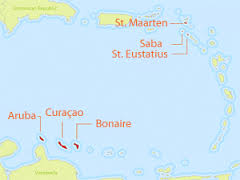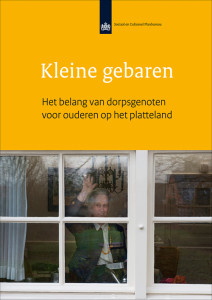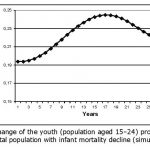Climate Change: The Mother Of All Geopolitical Challenges ~ Interview With Graciela Chichilnisky
 In this interview, Graciela Chichilnisky, a world leading economist and one of the major climate change forces in our era, talks about the reality of climate change science, the reasons why some corporate interests continue to deny the facts about it, and explains why climate change may represent the greatest geopolitical challenge facing humanity.
In this interview, Graciela Chichilnisky, a world leading economist and one of the major climate change forces in our era, talks about the reality of climate change science, the reasons why some corporate interests continue to deny the facts about it, and explains why climate change may represent the greatest geopolitical challenge facing humanity.
Marcus Rolle: Despite the international scientific community’s consensus on climate change, there are still people who deny that climate change exists or that it is caused by human activity. In fact, some of those naysayers have been funded by corporate interests such as ExxonMobil, as revealed by Exxon’s former in-houses climate change expert Lenny Bernstein. However, the evidence for global warming is overwhelming. Why, specifically, are some corporate interests bent on hiding the truth about climate change, and what’s your opinion on the effects of global warming?
Graciela Chichilnisky: Some of the naysayers have been funded by corporate interests as was revealed by Lenny Bernstein, the in-house climate change expert of Exxon. Lenny fought me tooth and nail in Kyoto during December 1997, while I designed and then wrote the Carbon Market into the United Nations Kyoto Protocol. At the end the carbon market prevailed and is now international law, and ironically it is now advocated by six of the largest oil companies in the world and this includes ExxonMobil.
Corporate interests are far reaching and they can permeate the entire economy and the politics of a nation as a whole. In the case of fossil fuels the situation is compounded by the central role played by energy in the economy. Fossil fuels are all about energy, and energy is the mother of all markets. Everything is made with energy, your home, your car, your food and the computer on which this article is written and read. For this reason the right to use fossil fuels is very basic and it is close to land’s rights; as land’s rights, the rights to fossil fuels can be the cause of wars. It is all about values. Some say that the right to fossil fuels is about the right to use the earth’s resources, which were provided by God to humans, and they hold this as a human right whether or not burning fossil fuels can cause catastrophes and damage irrevocably the rest of the world.
Tackling climate change is like abolishing slavery. It is so deeply felt that it can cause wars. 150 years ago it was nearly obvious to everybody that slavery must disappear, because of basic human principles and of the most sophisticated arguments about freedom, civil rights and even economics. Yet 150 years ago the US fought a fratricide war that was the bloodiest in the nations’ history, and tore the nation apart to defend the right to own slaves. The South lost, but it nevertheless attempted to resuscitate the war many times despite that.
US historians say that the economic value that is at stake from abolishing fossil fuels is about the same as the value that was involved in eliminating slavery in the US 150 years ago. The abolition of fossil fuels can destroy today the largest balance sheets in the planet: these are the balance sheets of the largest oil companies. It is not surprising that emotions and economic interests of that size run amok and cloud reason.
MR: You have said that climate change is the mother of all geopolitical challenges. Can you elaborate a bit on this?
GC: Climate change is all about the use of fossil fuels: over two thirds of the world’s CO2 emissions that cause climate change come from burning fossil fuels to produce energy. Fossil fuel energy is today the basis of industrialization, and its use since WWII is what is causing climate change. The period since WWII is when the world economy globalized, where the North and the South wealth gap increased deeply and became three times larger what it was before, when abject poverty led over 1.3 billion people to live below the level of satisfaction of basic needs, and on the brink of survival. The Bretton Woods institutions were created after WWII: the IMF, the World Bank, the WTO, and they were dominated by the US that become nearly 60% of the world economy after the destruction of Germany and Japan. The Bretton Woods institutions used financial tools, denominated in US dollars, to encourage and coerce 80% of the planet’s population in the developing nations to follow a resource intensive form of economic development, leading to the over-extraction and exports of their fossil fuel resources and other important natural resources at the lowest prices ever – except perhaps for the prices we face today –and their overuse in rich nations. Fossil fuels are intimately connected with globalization – indeed they are the basis of the current wave of globalization. Fossil fuels are the basis of industrialization and they are traded through international markets: the international markets are dominated by rich nations, and these markets grew three times faster than the world economy as a whole since WWII. In these markets, poor nations that house 80% of the world population over-extract the earth’s resources within their territory for exports, and export them at prices that are lower than replacement costs, leading to sustained poverty, while rich nations who house 20% of the world’s population overuse the world’s resources and benefit from them at very low prices. This implacable process has led to a 3x increase in the world’s wealth gap between the poor South and the rich North since WWII. The image is just 20% of the world’s population siphoning and overusing the great majority of world’s resources. But the process has reached its natural limits: the increasing inequality between rich and poor nations in the world economy and the corresponding overexploitation of resources is the cause of the global environmental crisis of our times. It is threatening every nation in the world. Global environmental risks are worst for the poor nations, but every nation is at risk from the massive overuse of resources our lopsided economies and international trade policies of the Bretton Woods institutions caused. Climate change means the rise of the seas which has the same level all over the world. While the poor will suffer more, rich nations will suffer $trillions in economic losses, according to OECD reports in Paris, and will face massive immigration flows that will threaten their institutions, as the Pentagon anticipates. Read more
Op-Ed: We Are Deeply Concerned About South Africa’s Current Course
 A letter from THE OLIVER AND ADELAIDE TAMBO FOUNDATION, the NELSON MANDELA FOUNDATION and the AHMED KATHRADA FOUNDATION to the ANC NEC.
A letter from THE OLIVER AND ADELAIDE TAMBO FOUNDATION, the NELSON MANDELA FOUNDATION and the AHMED KATHRADA FOUNDATION to the ANC NEC.
To: The National Executive Committee of the ANC
c/o The Secretary-General, Mr Gwede Mantashe
The Oliver and Adelaide Tambo Foundation, the Nelson Mandela Foundation and the Ahmed Kathrada Foundation jointly write to you at a difficult time in the history of the African National Congress and our country, South Africa. The ANC has been through challenging times before, but with the resourceful and courageous leadership the organisation has been blessed with in its long history, it can yet again provide an invigorated, visionary course into the future.
We are deeply concerned about the current course on which our country is headed. We believe this course is contrary to the individual and collective legacy of our Founders.
We read disturbing stories in newspapers and other media about “state capture”; we see important institutions of democracy such as Parliament under great strain; we hear what ordinary South Africans tell us through our work, and are challenged by friends and comrades who witness cumulative fragmentation of the ANC, a great organisation our Founders helped build and sustain over generations. In the spirit of our Founders, we cannot passively watch these deeply concerning developments unfold and get worse by the day.
Leaders such as Tambo, Mandela and Kathrada helped shape the ANC by providing a vision of a better future for all our people. Their vision of freedom, social justice, and democracy was embraced by millions of South Africans. It was based on and driven by strong moral authority and principled engagement. Their leadership and that of the ANC were admired the world over. It inspired other people in their own struggles.
Read more: http://www.dailymaverick.co.za/deeply-concerned
Interview With Graciela Chichilnisky ~ Reflections Of An Innovated-Minded Economist
In this new interview, Graciela Chichilnisky, a world leading economist and one of the major climate change forces in our era, talks about growing up in Argentina and the legacy of the Peron revolution, her struggles with gender discrimination in a male-dominated world of science, and the need to design new global institutions to address climate change.
Chichilnisky has published scores of books, including Saving Kyoto, and some 350 scientific articles in the world’s most prestigious economics and mathematics journals. The Washington Post calls her an “A-list star” and Time Magazine a “Hero of the environment. In addition, Chichilnisky has made revolutionary contributions to the world economy – like creating the concept of Basic Needs and the UN Carbon Market.
Marcus Rolle: You were born in Argentine and your father was a minister in the Juan Peron government. What was it like growing up in Argentina at the time of the Peron reign?
Graciela Chichilnisky: When I was a child, Buenos Aires seemed a magical place at a magical time. Buenos Aires is a lively and beautiful city, people were interesting and intense. In reality, Buenos Aires then reminds me of New York now: a graceful old city full of live, intensity and culture. And the Argentine countryside is extraordinary – Patagonia is a huge empty land of glaciers, cattle, sheep, whales, penguins and pink flamingos. The peaceful beauty of the Atlantic Coast, the majesty of the snowy Andes that have some of the tallest mountains in the world, the Iguazu Falls in the North boundary with Brazil, the enormity of the Pampas, it was all magic.
My father was a Professor of Neurology at the University of Buenos Aires and a minister of Public Heath under Peron and he built hundreds of hospitals all over Argentina. He was the doctor of Eva Peron and a friend of Juan Peron, who admired him. I still have some of the letters that Perón hand wrote to my father. Life under Peron then was intoxicatingly eventful. Evita took on the landed oligarchy and stood firm with the “descamisados” – the shirtless. In reality Evita and Peron represented the industrial revolution while the landed gentry represented the Spanish aristocracy. Landowners vs shirtless. The land in Argentina is so enormously rich and fertile – comparable only to the Ukraine and the Great Lakes in the US – that Argentina in the 1950’s was bound to become one of the richest countries in the world. But the forces of darkness won and there were coups d’etat that removed Peron after Evita’s early tragic death, the military dictators made torture a staple and dedicated the nation to exports of natural resources such as wheat and meat. No industrialization and a war pitting the landowning oligarchs against the labor unions. This destroyed the social advances of Peron and his intentions of industrializing Argentina. Even today a visitor can observe the industrial revolution that never happened. Eventually however and with the help of Margaret Thatcher – her best role perhaps – the military lost its prestige and was unmasked as brutal and incompetent and nowadays everybody is a Peronist. The recent presidential elections pitted one Peronist candidate against another. Even my spell corrector knows how to spell Peron and Evita and despite their errors they emerged as the heroes of the people – and the military-religious complex as the villains of the people. In a way the entire world now needs a Peronist revolution to counteract the enormous inequality of wealth that was created during the period of globalization and is destroying everything and the most basic human values along with the rest.
MR: At the age of 17 you went to the US to study at MIT as a graduate student under some rather unique circumstances. Would you relate the background of the events that brought you to the US?
GC: I was finishing high school when I started taking University courses without permission – there I met wonderful professors and students who opened my eyes to the world of science and mathematics – it was a great privilege. But towards the end of the 1960’s and the beginning of the 1970’s the military staged several coup d’etats and in one of them they closed down the University in Buenos Aires. One MIT professor who was there at the time, the famous Warren Ambrose, a well known Mathematician, decided to take 6 Argentinian students to MIT to continue their studies, since the University had been indefinitely closed down. All of them were graduate students who were taking doctoral courses in Mathematics – except for me who never went to college. MIT accepted me, a single mother without a college degree, as a Special Graduate Student in Mathematics and the Ford Foundation gave me a scholarship. After a year of very hard but enjoyable work I came on top of the Mathematics PhD class at MIT — and then I became an official PHD student in Mathematics at MIT. This led me to obtain to a PhD in Mathematics, and then another PhD in Economics at UC Berkeley – two PhDs to compensate for the fact that I never got a college degree! Read more
Climate Change And The Future Of The World: An Interview With Graciela Chichilnisky
In this highly insightful interview, climate change authority and leading economist Graciela Chichilnisky talks about the catastrophic threats that climate change pose to the future of the world if we fail to coordinate global actions aimed at the curbing of emissions and the removal of carbon dioxide from the air through the revolutionary technology available. Professor Chichilnisky also argues, however, that technology isn’t magic, and that what is required for tackling global warming with carbon negative technologies are fundamental changes in the way the global economy and its institutions have functioned in the post-war era.
Marcus Rolle: You have been for many years one of the leading forces in climate-change efforts. How do we define climate change?
Graciela Chichilnisky: Climate change means a major shift in climate patterns, such as dramatic increase in the violence, frequency, length, and severity of climate events, including superstorms, tornadoes, typhoons, major floods, and long severe droughts, as well as other climate related environmental disasters. These events increase both in intensity and frequency as energy in the atmosphere increases, which occurs when the mean temperature increases. Climate change also means dramatic changes in long term climate patterns such as desertification, the alteration or the reversal of major ocean currents, changes in the sea level, melting of the planet’s polar caps, and glacier periods.
MR: What evidence do you think supports the argument that climate change is taking place and that the global mean temperature is driven up by human interference?
GC: The statistical evidence conforms to the definition just provided: the planet’s polar caps are indeed melting, and the sea levels are indeed rising. This has been measured and is directly observed. We have increasingly violent, frequent, lengthy and severe climate events, major floods and unusual severe droughts that do not correspond statistically to standard deviations from the mean. Thousands of scientists from all over the world who report to the United Nations Intergovernmental Panel on Climate Change (IPCC) have come to the conclusion that changes in temperature are associated with changes in the concentration of greenhouse gases, of which the main one is CO2, and that mean temperature is increasing due, for the most part, to the burning of fossil fuels – coal, natural gas and petroleum -– for economic purposes: industrialization. Read more
Wouter Veenendaal ~ Smallness And Status Debates In Overseas Territories: Evidence From The Dutch Caribbean
 While non-sovereignty is often presented as a rational and pragmatic political status option, this paper asserts that the smallness of overseas territories in various ways obstructs and distorts the formation of an informed local public debate about this political status. Due to personalistic politics, patron-client relations, excessive executive dominance, and the lack of professional media, which all are consequences of a small population size, the extent to which citizens of overseas territories are involved and represented in status debates is limited. The paper uses the 2010 political reforms of the Dutch Caribbean islands as an illustrative case study, to show how the smallness of these islands has obstructed a balanced consideration of status options among the population.
While non-sovereignty is often presented as a rational and pragmatic political status option, this paper asserts that the smallness of overseas territories in various ways obstructs and distorts the formation of an informed local public debate about this political status. Due to personalistic politics, patron-client relations, excessive executive dominance, and the lack of professional media, which all are consequences of a small population size, the extent to which citizens of overseas territories are involved and represented in status debates is limited. The paper uses the 2010 political reforms of the Dutch Caribbean islands as an illustrative case study, to show how the smallness of these islands has obstructed a balanced consideration of status options among the population.
Full text: http://www.tandfonline.com/
Kleine dorpen ~ geen sociaal vangnet voor de meest kwetsbare ouderen
 Ondanks de vergrijzing en verschraling van het voorzieningenniveau is het dorp nog altijd een aantrekkelijke woonplek voor de oude dag. Het sociaal vangnet biedt soelaas wanneer ouderdomskwalen zich aandienen. Bevestigt ook het SCP-rapport ‘Kleine gebaren’. Maar niet voor iedereen, isolement en eenzaamheid is voor de meest kwetsbare ouderen een hardnekkig probleem, zelfs in kleine dorpsgemeenschappen.
Ondanks de vergrijzing en verschraling van het voorzieningenniveau is het dorp nog altijd een aantrekkelijke woonplek voor de oude dag. Het sociaal vangnet biedt soelaas wanneer ouderdomskwalen zich aandienen. Bevestigt ook het SCP-rapport ‘Kleine gebaren’. Maar niet voor iedereen, isolement en eenzaamheid is voor de meest kwetsbare ouderen een hardnekkig probleem, zelfs in kleine dorpsgemeenschappen.
Het SCP-rapport ‘Kleine gebaren’ maakt deel uit van het onderzoeksprogramma De Sociale Staat van het Platteland (SSP). De afgelopen tien jaar is de sociale conditie van het platteland vanuit diverse invalshoeken onder de loep genomen in een reeks rapporten. Daarin lezen we hoe dorpen van karakter veranderen en gaandeweg ook stedelijke trekjes krijgen. In dit jongste rapport onderzoekt Lotte Vermeij van het SCP wat dorpsgenoten betekenen voor het groeiende aantal ouderen in dorpen. Een actueel thema in een tijdsgewricht waarin ouderen langer zelfstandig willen wonen, ook als zich gebreken aandienen. En de overheid uit financiële noodzaak de rem zet op de toenemende behoefte aan voorzieningen voor ouderen. Het gevolg hiervan is dat ouderen die hulp aan huis nodig hebben, in de toekomst steeds vaker een beroep moeten doen op de mensen in hun omgeving. Het SCP wil weten wat dit betekent voor ouderen in kleine dorpen waar voorzieningen speciaal voor ouderen doorgaans ontbreken. Hoe is het daar gesteld met de zelfredzaamheid? In hoeverre zijn dorpsgenoten bereid om bij te springen? Een andere reden om dit rapport tegen het licht te houden, is de vraag of grotere dorpen en steden op dit punt iets kunnen leren van kleine dorpsgemeenschappen? Zijn er overeenkomsten, of zijn de omstandigheden in kleine dorpen juist heel uitzonderlijk?
Eenzaamheid ligt op de loer
In ‘Kleine gebaren’ nuanceert het SCP het clichébeeld van het kleine dorp als een hechte gemeenschap waar ‘noaberschap’ vanzelfsprekend is en dorpsgenoten automatisch voor elkaar klaar staan. De enquête onder 7000 bewoners van dorpen met minder dan 3000 inwoners, wijst uit dat ouderen over het algemeen uiterst tevreden zijn met hun dorp, slechts een kleine minderheid ziet dat anders. Wel neemt het aantal contacten met dorpsgenoten op oudere leeftijd geleidelijk aan af. En hun beeld van het dorp wordt op oudere leeftijd iets minder rooskleurig. Ouderen die zichtbaar onthand zijn, kunnen op een helpende hand rekenen. De mate van aansluiting bij dorpsgenoten speelt niet zo’n grote rol bij de praktische hulp die ouderen nodig hebben. De waarde van contacten ligt op een ander vlak. Het onderhouden van dorpscontacten blijkt vooral een buffer te zijn tegen sociaal-emotionele problemen. Daar zit gelijk ook de grootste pijn bij de meest kwetsbare ouderen, met name bij bewoners die van een laag inkomen moeten rondkomen. Zij missen de aansluiting en raken hierdoor steeds verder in een isolement. En dan ligt eenzaamheid op de loer. Deze dorpsbewoners laten zich somber uit over de lokale omgangsvormen. En geven aan dat ze geen behoefte hebben aan hulp. Het laat zich aanzien dat deze ouderen hun verwachtingen al veel eerder naar beneden hebben bijgesteld. Read more



